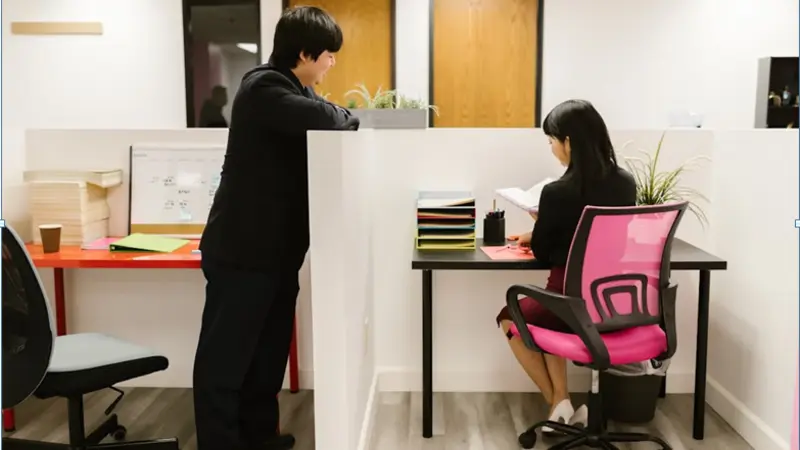In this article we will talking about 3 reasons the days of office cubicles are over. As we dawn into a new chapter of modern work environments, business owners. And workplace futurists are increasingly finding The days of traditional office cubicles are waning. The trends that are transforming the nine-to-five routine into a more fluid, dynamic, and adaptable work experience are not transient fads; they are rooted in a deeper yearning for innovative spaces that spur creativity, enhance well-being, and harness technologically-driven efficiencies.
Reason 1: Evolving Work Culture
The fabric of what constitutes a normal ‘workday’ has been fundamentally altered by a confluence of factors including remote work and flexible schedules. Today’s employees desire a harmonious blend of professional and personal life, which is often served best by non-conventional workspaces. The traditional office cubicle, once a symbol of privacy and focus, is no match for the bustling energy of remote work and the flexibility that employees crave. Furthermore, the modern emphasis on collaboration and teamwork bring into question the effectiveness of physical barriers in fostering a cohesive work environment. New Zealand’s particular cultural make-up of valuing work-life balance and equality among peers has accelerated the shift away from isolated workstations. You can get the balance right with Smart Office Furniture in Wellington rather than traditional cubicles.
Reason 2: Employee Well-Being and Productivity
The health and productivity of employees is increasingly in focus. Research indicating that the design of the workplace directly impacts both. Open office layouts, often seen as the antithesis to cubicles, have been found to promote increased interaction, idea flow, and a sense of community amongst peers. Workers also prefer environments rich in natural light and with ergonomic design that supports their physical well-being. Office cubicles, with their often dim, enclosed spaces, can’t compete in providing the uplifting environment. That is proven to directly influence employee happiness and performance.
Reason 3: Technological Advancements
The rapid advancement of technology is breaking down physical barriers in the workplace and rendering traditional setups obsolete. Digital communication tools make it easier than ever for teams to stay connected. They are working in the same room or across different continents. Cloud-based systems and remote access enable employees to be as productive at home or in a coffee shop as they are in the office. This seismic shift in tech-driven work practices means that the once-necessary walls of the cubicle. Designed to provide a private space for productivity, are now superfluous.
Conclusion
The decline of office cubicles is not just a response to the changes of the past year. A symptom of a larger revolution in how we perceive work. Adaptable workspaces are becoming a non-negotiable cornerstone in the mosaic of modern professional life. In New Zealand, where innovation and creativity flourish, business owners and workplace architects must heed these signs and reimagine the very spaces that once defined the working day. The future is open, fluid, and interconnected. It’s time our office spaces reflect that exciting evolution.
